10 Best Herbal Teas For Cavities

Herbal teas have gained popularity as natural remedies for oral health, particularly in the prevention and treatment of cavities.
Certain herbs, such as clove, neem, and green tea, possess antimicrobial and anti-inflammatory properties that can help reduce harmful bacteria in the mouth. Regular consumption of these herbal teas may help prevent plaque buildup and reduce the risk of tooth decay. However, while herbal teas can support overall oral hygiene, they should not replace professional dental care.
It is important to consult with a dentist for comprehensive treatment of cavities and to ensure that herbal remedies are safe and effective for individual health needs.
Table of Contents
- 1. Salvia (Salvia officinalis)
- 2. Eucalyptus (Eucalyptus globulus)
- 3. Ceylon cinnamon (Cinnamomum verum)
- 4. Oregano (Origanum vulgare)
- 5. Lemon balm (Melissa officinalis)
- 6. Rosemary (Rosmarinus officinalis)
- 7. Black pepper (Piper nigrum)
- 8. Ginger (Zingiber officinale)
- 9. Thyme (Thymus vulgaris)
- 10. Camellia (Camellia sinensis)
1. Salvia (Salvia officinalis)

Salvia officinalis, commonly known as sage, has been traditionally used for its medicinal properties, including its potential benefits for oral health.
Sage herbal teas are believed to help reduce bacteria in the mouth, which can contribute to the prevention of cavities by minimizing plaque formation. The tea contains natural compounds such as thujone and flavonoids that may have antimicrobial and anti-inflammatory effects. Some studies suggest that sage may help neutralize acids produced by oral bacteria, thereby protecting tooth enamel.
However, while sage tea may support oral hygiene, it should not replace proper dental care and professional treatments for existing cavities.
2. Eucalyptus (Eucalyptus globulus)
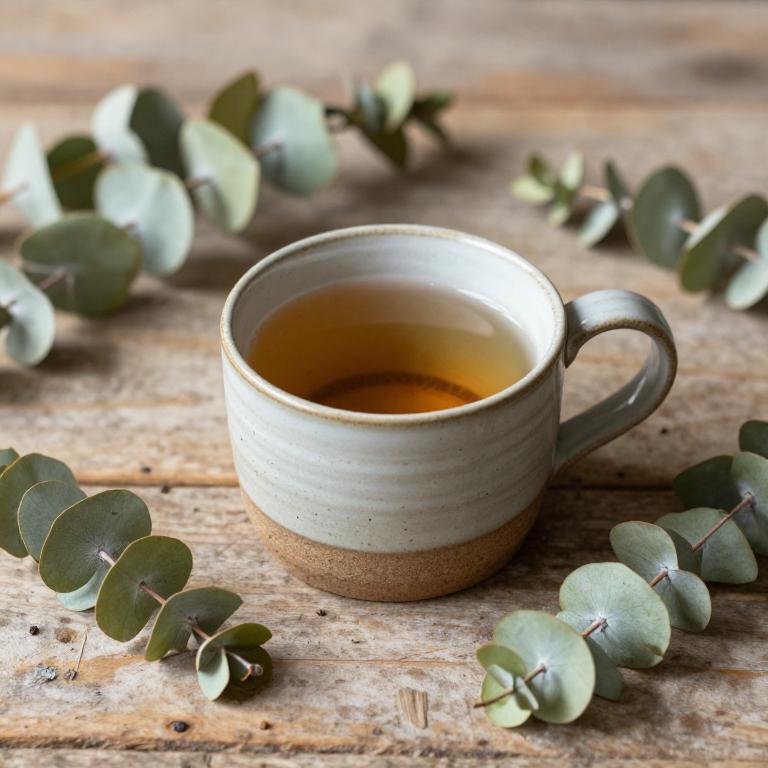
Eucalyptus globulus, commonly known as the Australian eucalyptus, is often used in herbal teas for its potent antibacterial and anti-inflammatory properties.
These properties make it a popular choice for natural remedies aimed at preventing and treating dental cavities. The essential oils in eucalyptus globulus contain compounds like cineole and limonene, which help reduce bacterial growth in the mouth. Regular consumption of eucalyptus globulus herbal tea may support oral hygiene by inhibiting the formation of plaque and reducing the risk of tooth decay.
However, it is important to consult a dentist for severe dental issues, as herbal teas should complement, not replace, professional dental care.
3. Ceylon cinnamon (Cinnamomum verum)
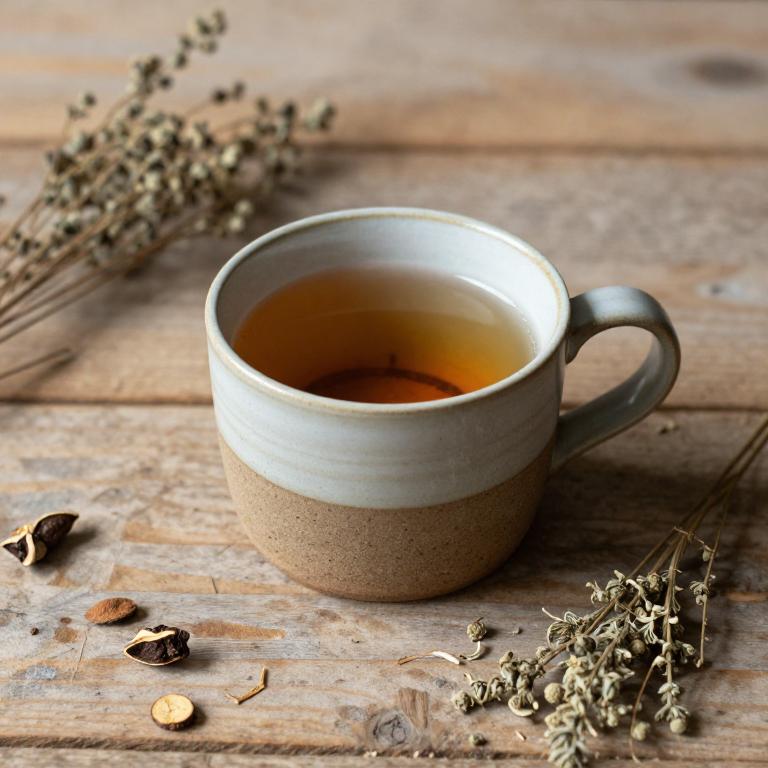
Cinnamomum verum, commonly known as true cinnamon, is often used in herbal teas for its potential health benefits, including its antimicrobial properties that may help prevent cavities.
The essential oils in cinnamon, such as cinnamaldehyde, have been shown to inhibit the growth of bacteria like Streptococcus mutans, which are major contributors to dental decay. While cinnamon tea is not a substitute for proper dental hygiene, it can serve as a complementary remedy to support oral health when consumed regularly. Some studies suggest that cinnamon may reduce plaque formation and promote remineralization of tooth enamel.
However, it is important to consult with a dentist or healthcare provider before using cinnamon or any herbal remedy for dental issues.
4. Oregano (Origanum vulgare)
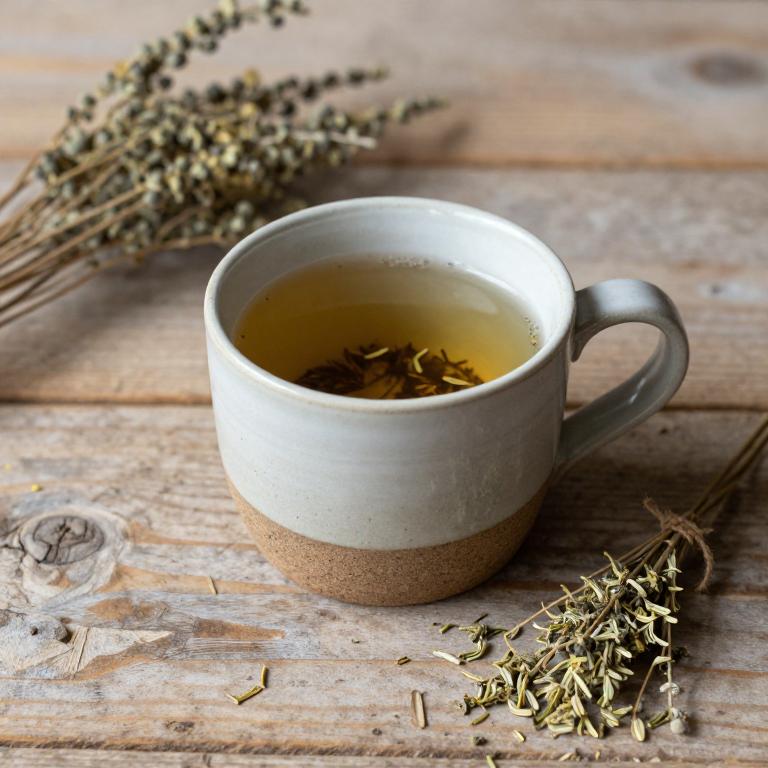
Origanum vulgare, commonly known as oregano, is a versatile herb that has been traditionally used for its medicinal properties, including its potential benefits for oral health.
The essential oils in oregano, particularly carvacrol and thymol, exhibit antimicrobial properties that can help combat bacteria responsible for tooth decay and gum disease. When used in herbal teas, oregano can support the natural balance of oral flora and reduce the risk of cavities by inhibiting the growth of harmful microorganisms. However, it is important to note that oregano should not replace proper dental hygiene practices such as brushing and flossing.
While some studies suggest that oregano may have a positive impact on oral health, more research is needed to fully understand its effectiveness in preventing cavities.
5. Lemon balm (Melissa officinalis)
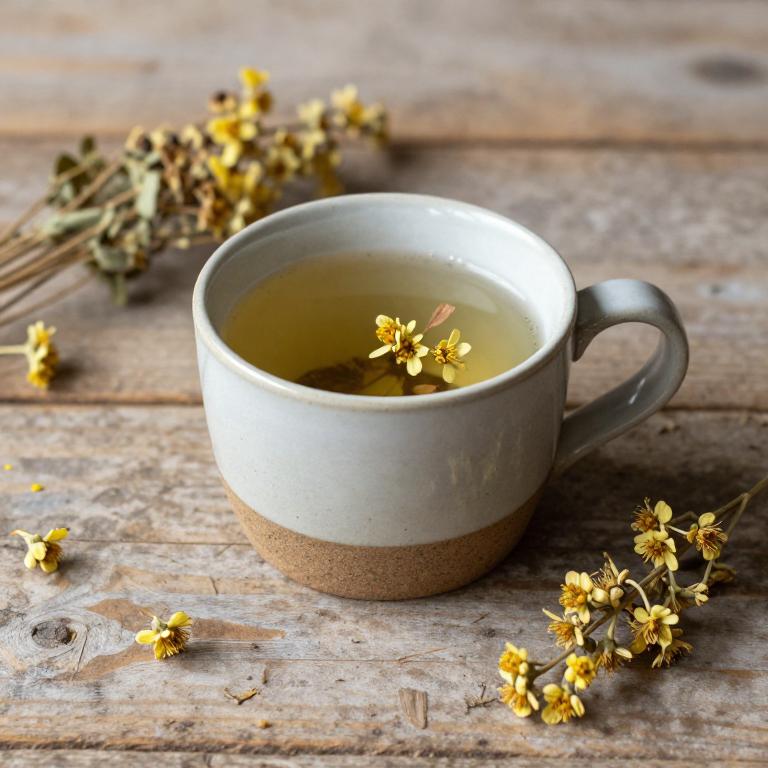
Melissa officinalis, commonly known as lemon balm, is a herb often used in herbal teas for its calming properties, but it also has potential benefits for dental health.
While it is not a substitute for professional dental care, some studies suggest that the antimicrobial compounds in lemon balm may help reduce bacteria that contribute to cavities. Herbal teas made from lemon balm can be used as a natural mouth rinse to promote oral hygiene and freshen breath. However, it is important to note that these teas should complement, not replace, regular brushing, flossing, and dental checkups.
Overall, lemon balm herbal teas may offer supportive benefits for oral health, but their effectiveness in preventing cavities requires further scientific validation.
6. Rosemary (Rosmarinus officinalis)

Rosmarinus officinalis, commonly known as rosemary, is a fragrant herb that has been traditionally used for its aromatic and therapeutic properties.
Rosemary herbal tea, made from the dried leaves of this plant, is believed to offer various health benefits, including potential support for oral health. Some studies suggest that the essential oils in rosemary, such as cineole, may have antimicrobial properties that could help reduce bacteria associated with cavities. While rosemary tea is not a substitute for proper dental care, it may complement oral hygiene routines by promoting fresh breath and reducing plaque buildup.
However, it is important to consult with a dentist or healthcare professional before using rosemary or any herbal remedy for dental issues.
7. Black pepper (Piper nigrum)
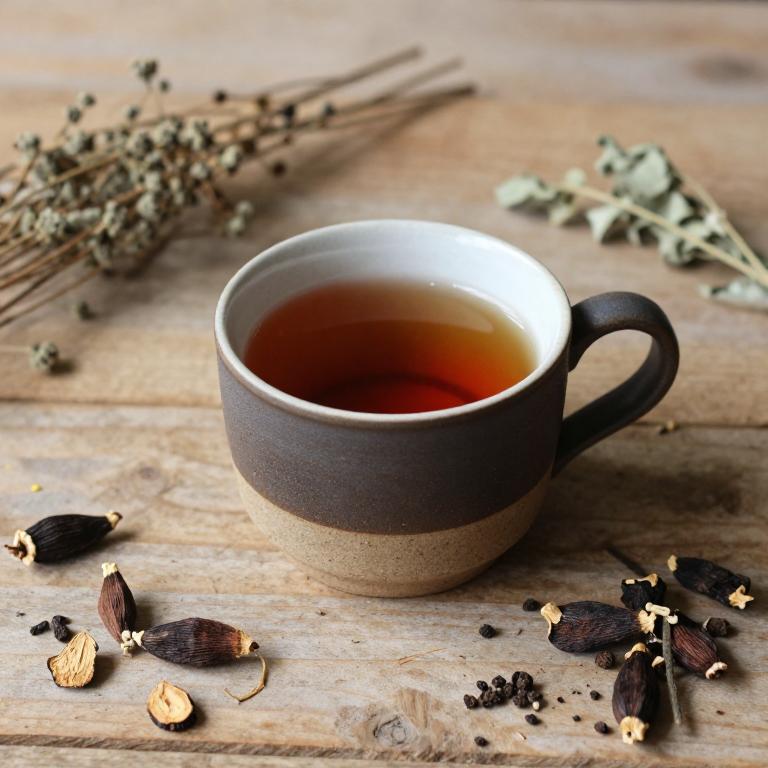
Piper nigrum, commonly known as black pepper, is often used in herbal teas for its potential health benefits, though it is not specifically recommended for treating cavities.
While black pepper contains compounds like piperine that have antimicrobial properties, there is limited scientific evidence supporting its use as a primary treatment for dental cavities. Some people may use black pepper tea as a natural remedy to support oral hygiene, but it should not replace professional dental care. It is important to consult a dentist for proper diagnosis and treatment of cavities.
Overall, while herbal teas like black pepper may contribute to overall wellness, they are not a substitute for effective dental treatments.
8. Ginger (Zingiber officinale)

Zingiber officinale, commonly known as ginger, has been traditionally used in herbal teas for its potent anti-inflammatory and antimicrobial properties.
When consumed as a herbal tea, ginger can help reduce inflammation in the gums and inhibit the growth of harmful bacteria that contribute to cavities and periodontal disease. Its ability to stimulate saliva production also aids in neutralizing acids in the mouth, which can prevent tooth decay. While ginger tea is not a substitute for regular dental care, it may serve as a complementary remedy to support oral health.
However, it is important to consult with a dentist or healthcare professional before using ginger tea as part of a dental care routine.
9. Thyme (Thymus vulgaris)

Thymus vulgaris, commonly known as thyme, is a popular herb used in herbal teas for its antimicrobial and anti-inflammatory properties.
When brewed into a tea, thyme can help reduce bacterial growth in the mouth, which is a primary cause of cavities and gum disease. The essential oils in thyme, such as thymol, have been shown to inhibit the growth of Streptococcus mutans, a key bacteria responsible for tooth decay. Regular consumption of thyme tea may support oral hygiene by promoting a healthier bacterial balance in the mouth.
However, it is best used as a complementary remedy alongside proper dental care and professional treatment for existing cavities.
10. Camellia (Camellia sinensis)

Camellia sinensis, the plant from which green and black teas are derived, contains bioactive compounds like polyphenols and catechins that have been shown to possess antibacterial properties.
These compounds may help reduce the presence of harmful oral bacteria, such as Streptococcus mutans, which are known to contribute to tooth decay and cavities. While herbal teas made from Camellia sinensis are not a substitute for professional dental care, they may serve as a complementary natural remedy to support oral health. Some studies suggest that regular consumption of tea can help neutralize acids in the mouth, thereby reducing the risk of enamel erosion.
However, it is important to note that more research is needed to fully understand the extent of its benefits in cavity prevention.